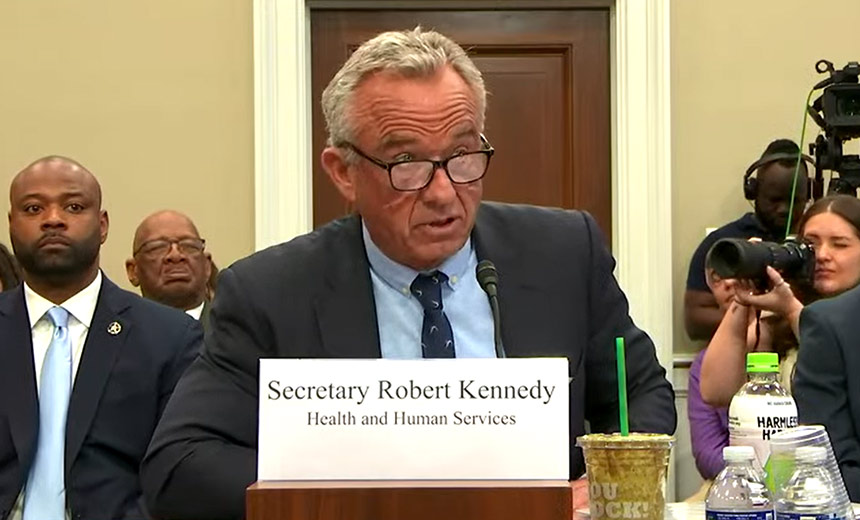Cybersecurity Spending,
Healthcare,
Industry Specific
HHS Secretary Addresses Congress on Proposed FY 2026 Budget

During recent budget hearings, Robert F. Kennedy Jr., Secretary of Health and Human Services (HHS), emphasized plans to enhance cybersecurity and health information technology (IT) through artificial intelligence (AI) at federal health agencies. This commitment was shared amidst congressional scrutiny over proposed budget reductions for fiscal year 2026.
Kennedy’s remarks came during his opening testimony to a House appropriations committee and a Senate health panel hearing. While the hearings targets were the proposed budget allocations for HHS, Democratic lawmakers used the opportunity to critique the financial cuts instituted by the former Trump administration, which included a reduction of 20,000 positions within HHS.
The criticisms extended to the legality of the significant financial reallocations impacting agencies such as the National Institutes of Health (NIH) and the Centers for Disease Control and Prevention (CDC). Lawmakers pointed out that funding for ongoing programs had previously been authorized by Congress for the fiscal years 2024 and 2025, raising concerns about the implications of maintaining existing healthcare facilities and initiatives.
Committee Ranking Member Rosa DeLauro, D-Conn, expressed her concerns, highlighting that the Office of Management and Budget director suggested that HHS was planning to withhold billions in congressionally approved NIH research funding—a move Keller claimed was unauthorized. Throughout both hearings, Kennedy reiterated his inability to discuss the specifics of the current budget cuts due to a federal court ruling, which has temporarily paused much of the departmental restructuring.
Despite the scrutiny, Kennedy remained focused on reaffirming HHS’s dedication to cybersecurity and the integration of AI technologies. He stated, “We will strengthen cybersecurity and health IT,” emphasizing that these efforts aim to manage healthcare data more effectively and securely. However, no specific inquiries were made regarding concrete measures to enhance cybersecurity or health IT strategies during the hearings. In his responses, Kennedy offered insights into the FDA’s application of AI to expedite biomedical technology reviews during critical phases of research.
Furthermore, HHS aspires to promote telemedicine advancements, particularly those utilizing AI, to address workforce shortages and improve service accessibility in underserved areas. Kennedy indicated plans to “revolutionize telehealth and AI availability,” facilitating alternatives to emergency care through improved home healthcare options. He showcased AI capabilities, such as accurately diagnosing strep throat through smartphone images—promising enhanced accuracy over traditional throat swabs.
‘Skinny Budget’
As of this week, the Trump administration has released a preliminary “skinny budget” without comprehensive details on specific agency staffing and funding requests, including HHS’s Office for Civil Rights, which oversees HIPAA enforcement. Overall, the proposed fiscal budget suggests an allocation of $93.8 billion for HHS—a significant 26.2% decrease from the fiscal 2025 levels.
During the Senate HELP committee session, Kennedy also mentioned HHS’s plans to create a national registry for individuals with autism, ensuring strict patient privacy by de-identifying data and offering opt-out options. He articulated that “every significant illness possesses a corresponding registry” maintained by the NIH, a move that reflects HHS’s commitment to integrating advanced data management strategies within their healthcare programs.
